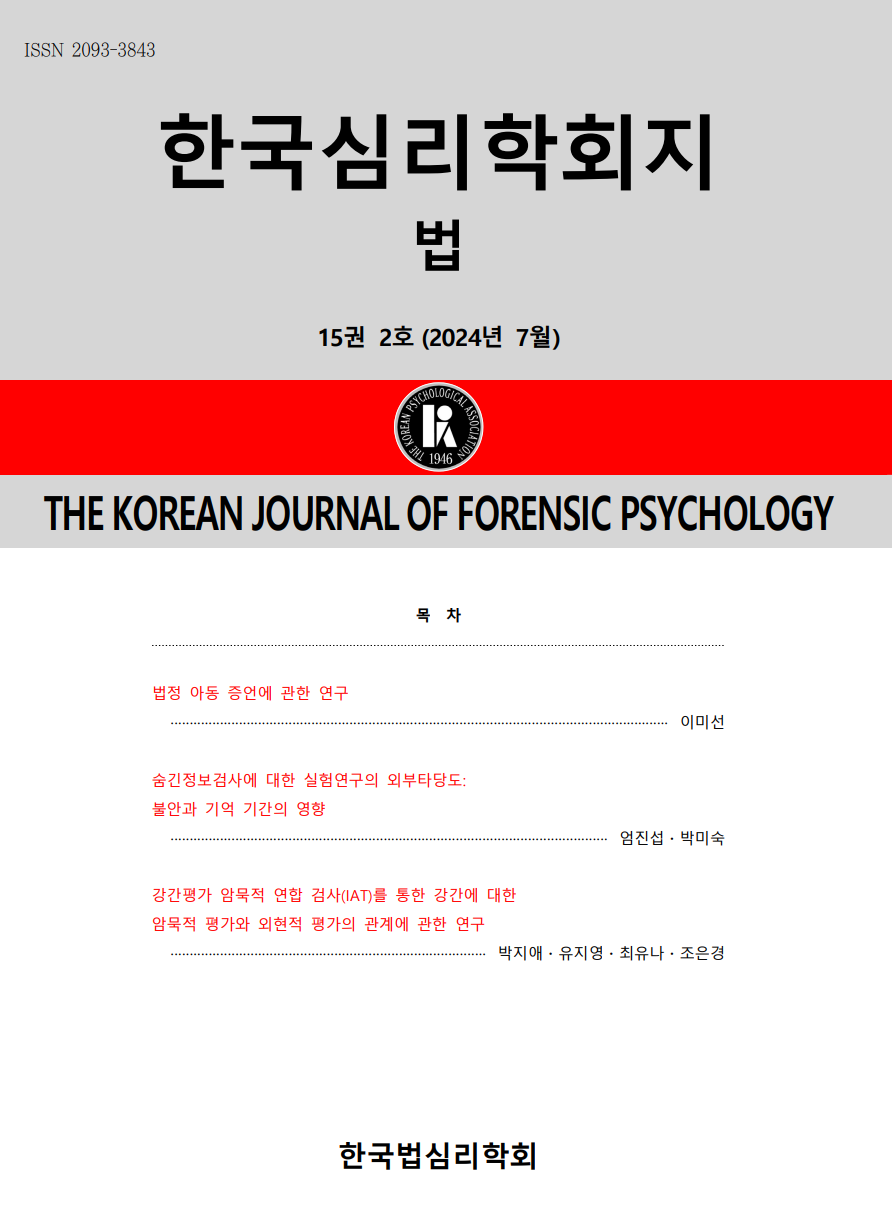 ISSN : 2093-3843
ISSN : 2093-3843
The present study analyzed the perspectives of empirical science toward the standard of proof for criminal trials (“Beyond Reasonable Doubt”) as reflected on the studies that have been conducted to understand the qualitative as well as quantitative meaning of the standard. From this analysis, two implications emerged: (1) The theories and knowledge acquired through psychological studies of lay individuals can be used to understand judicial decision-making; (2) laypeople’s standard of proof for criminal trials may be higher than that of judges so that jurors may commit type-1 error less than would the judges in the long run. Based on the two implications, how to approach to the judge-jury difference, albeit small, in criminal fact-finding was discussed.

